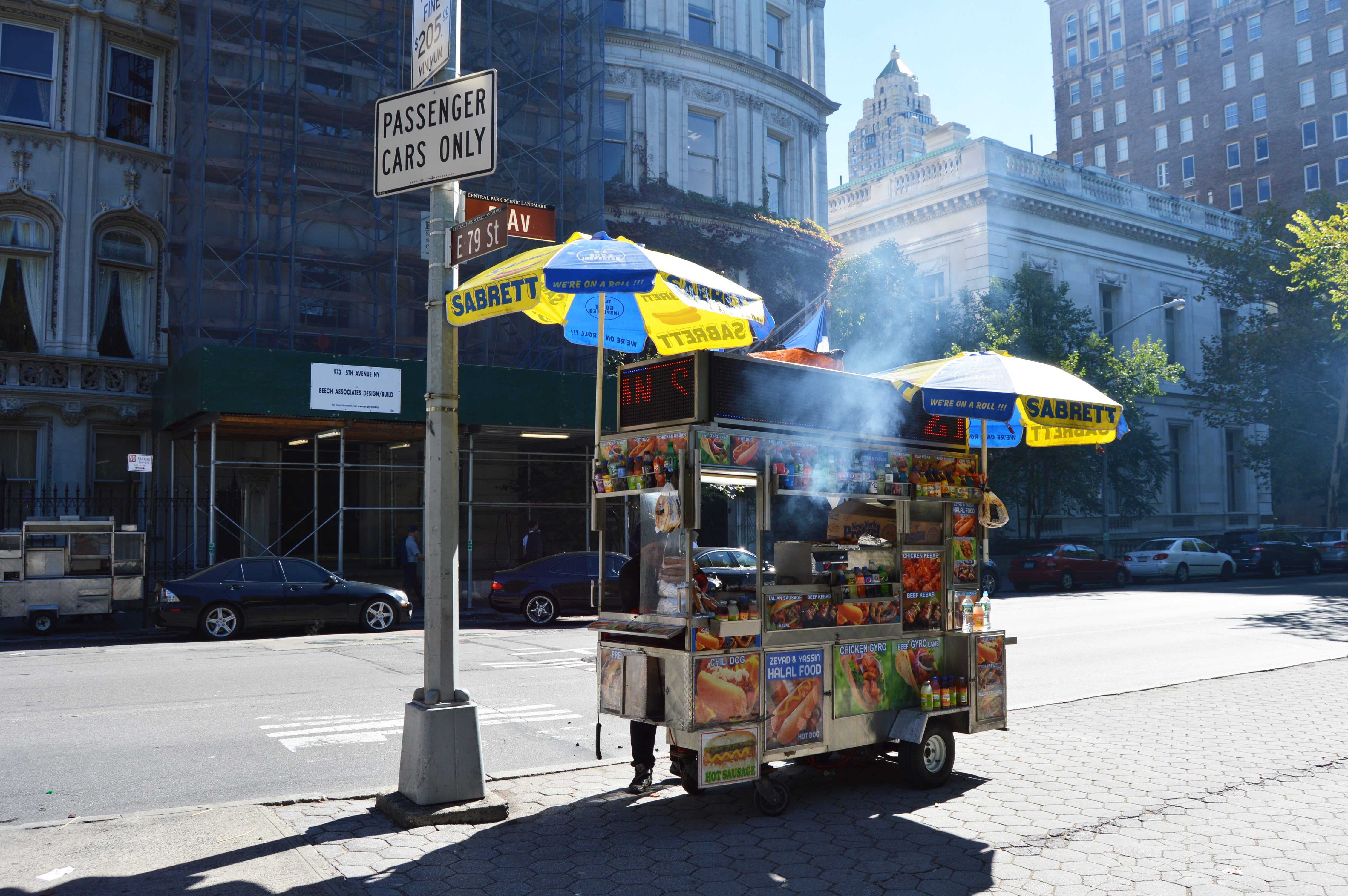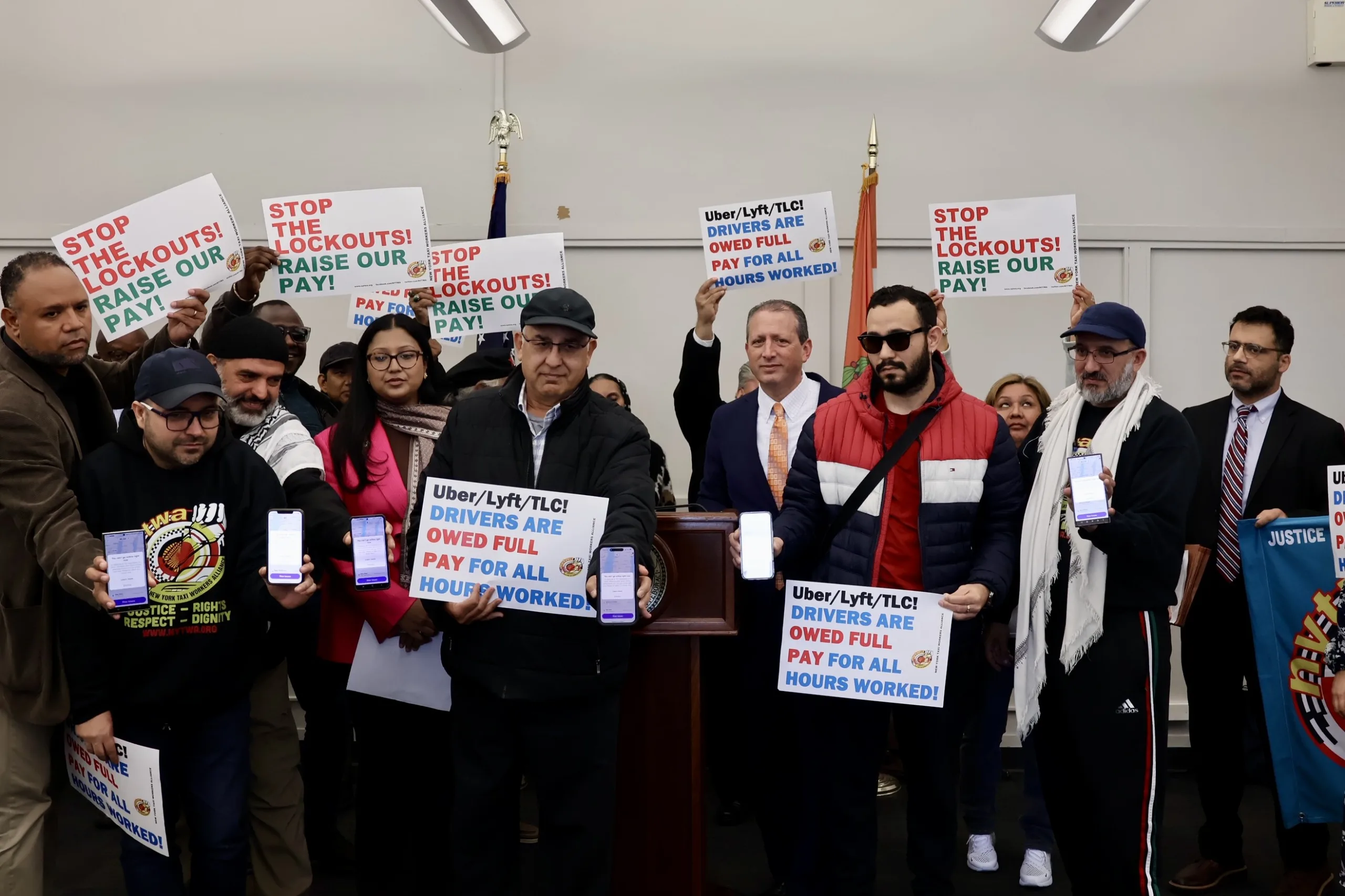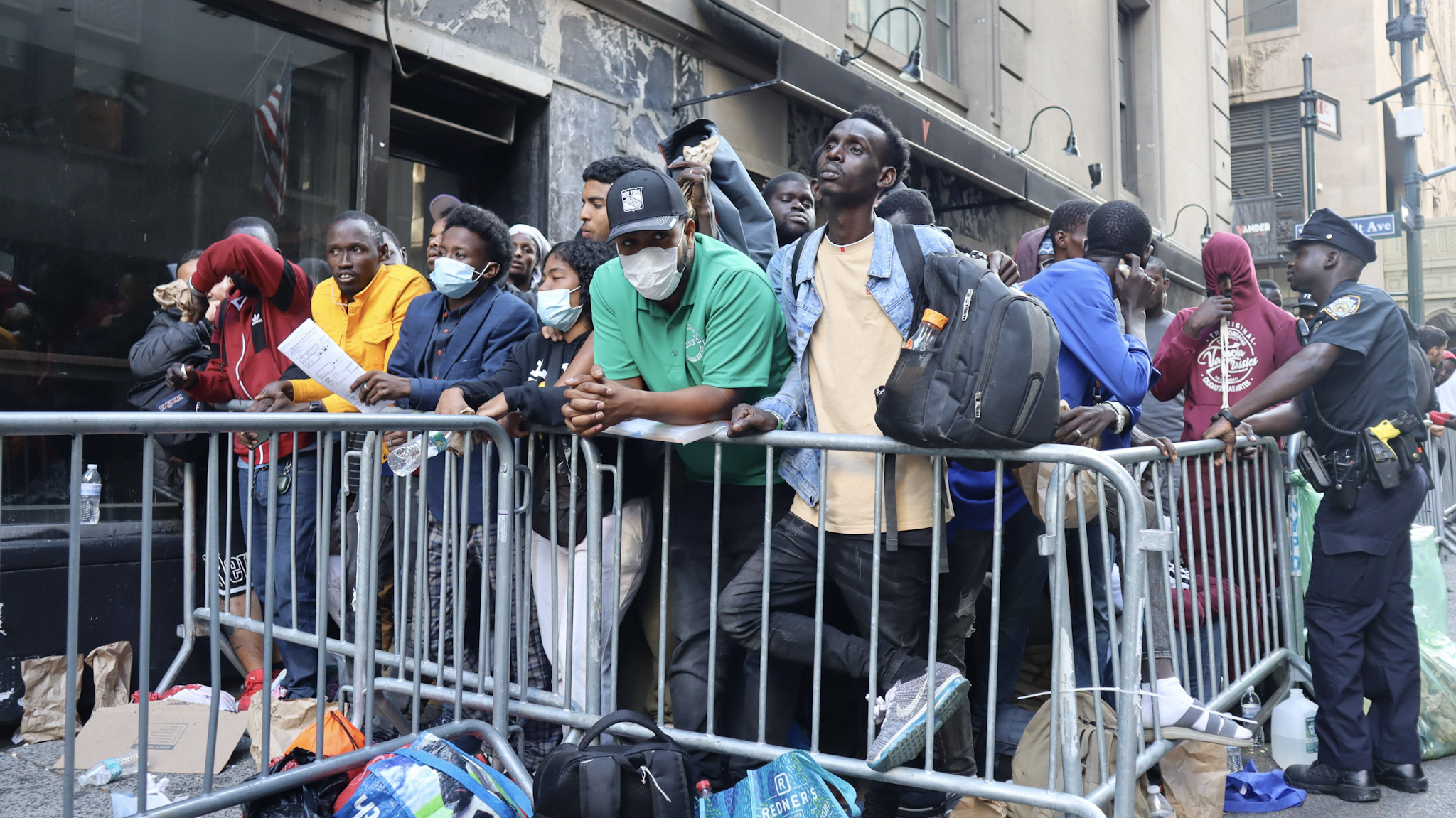The New York City Department of Health and Mental Hygiene wants to use GPS devices to track the city’s food trucks, and advocates and street vendors are not happy about it.
At a hearing on Monday morning in Long Island City, three senior staff members of the department listened to testimonies given about the proposed rule to keep tabs on the city’s mobile food vendors — an estimated 85 percent of which are immigrants — with GPS devices.
“I am against the use of GPS on carts. As an immigrant, this concerns me,” said Eliana Jaramillo, a street vendor from Bolivia who sells hot dogs on 43rd Street and 6th Avenue. “The procedure in place is adequate, new technology isn’t needed.”
The proposed tracking is a component of a bill passed last year by the City Council, yet to be implemented, which will require all mobile food vendors to post letter health inspection grades similar to the city’s restaurants. The DHMH believes the tracking devices will help inspectors locate the trucks and carts for inspections.
But vendors and advocates such as Matthew Shapiro, the legal director of the Street Vendor’s Project, a non-profit that advocates on behalf of street vendors in New York City, are concerned with the mass data–collection effort and who would have access to the information.
“We’re concerned about the possible situation of somebody getting access to this data,” Shapiro said last week. “Let’s say the federal government subpoenas this information from the city’s health department,” Shapiro suggested, “they’re going to be turning over location data for huge numbers of people.”
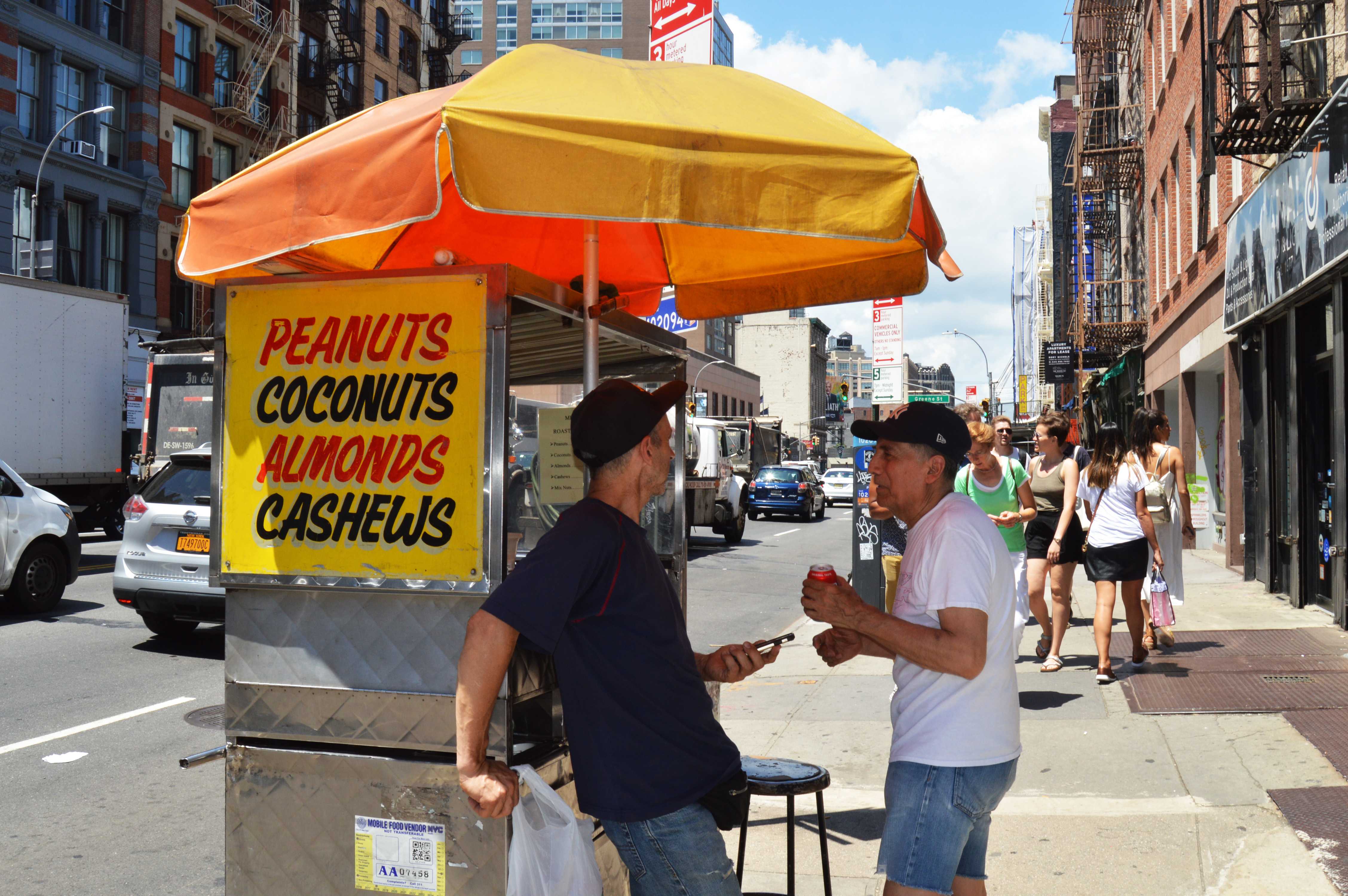
Street vendors, lawyers, concerned citizens, activists and Manhattan Borough President Gale Brewer gave testimonies in a large office room on Monday, July 9. Most who spoke were in favor of the new letter grading system but opposed to the GPS tracking system, including Brewer.
Brewer noted she was an early advocate of GPS tracking for mobile food vendors in 2011, “before that guy Trump,” she said, before the “federal situation.” Despite her previous support, it no longer makes sense to her.
Jeffrey Hoffman, the vice president of Move Systems, which manufactures environmentally friendly mobile carts — most famously those for Nathan’s Hot Dogs — testified in favor of the letter grading, but opposed the GPS tracking as it’s stated in the proposed rule for privacy reasons. He believes the tracking data should only be used for health inspections. Otherwise, data should be destroyed and made unavailable to other entities.
Meanwhile, Dan Biederman of the 34th Street Partnership, Bryant Park, stated he was in favor of all aspects of the new rule, including GPS tracking, calling it “silly” to not use modern technology.
Last week at the Street Vendor’s Project’s downtown office, Shapiro explained that in accordance with the DHMH’s proposed rule, the GPS device would only be used to track the mobile food units at certain points in time, not continuously. “But there is no information about who gets access to the data, how long the data is stored,” said Shapiro. “And what about the people who are working on the cart?” adding that many have various immigration statuses, from undocumented to waiting for citizenship.
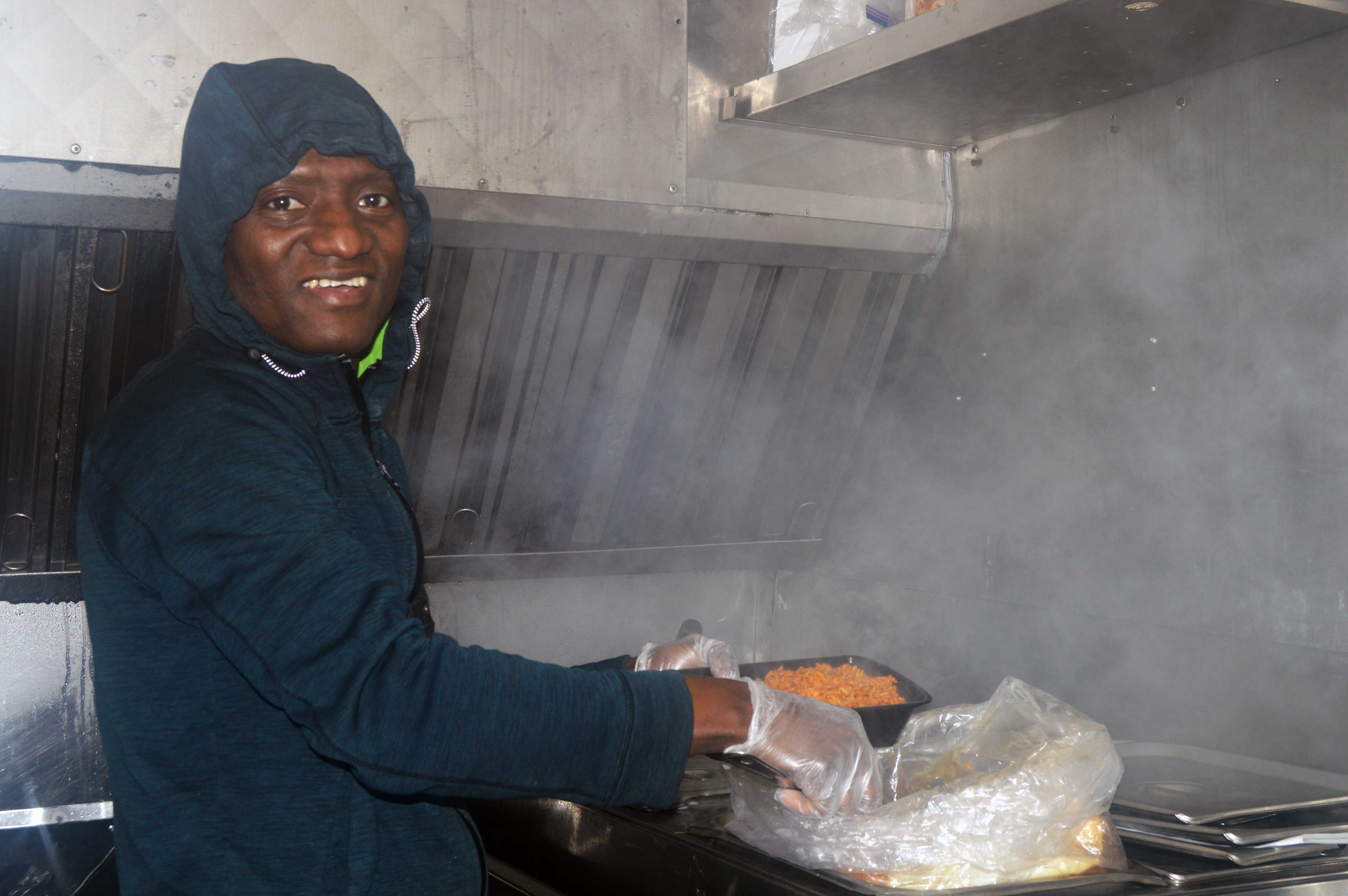
“That just gives them another tool to sort of implement these harsh immigration tactics that we’ve been seeing in the news,” said Shapiro, referencing the recent heightened atmosphere of immigration enforcement in the city. “There’s been a whole history of so many years of food vendor inspections, and to say, now, ‘You need GPS’ is a little bit suspect.”
Despite the handful of mobile food vendors who showed up and gave testimonies at Monday’s hearing, most vendors are unaware of the proposed GPS tracking component of the upcoming letter grade system.
“This is the first time I’m hearing about this,” said Godshelter Oluwalogbon, the chef and owner of Divine Flavored Nigerian Food Truck, as he served Jollof rice with goat to his regulars last week while parked outside the Nigerian Mission near the UN. “The city really has so much money to waste on a program like this?” he asked, rhetorically. Oluwalogbon believes the new letter grade system will improve his business, but he’s “completely against” the GPS tracking.
“It’s very easy to find,” said Pasang Thinlay of his bright red Momo Delight cart that’s nearly always parked in the same spot in Jackson Heights, Queens. Thinlay, an immigrant from Tibet by way of Nepal, has developed a following for his succulent Tibetan dumplings, in part because his cart is so easy to find. Thinlay questioned why the DHMH needs tracking devices when most street vendors’ businesses depend on reliability of location. “We just set up our Google Maps,” Thinley said proudly, adding that if the cart moves or he disappears for a day to cater an event, he posts it on social media.

On bustling lower Broadway in Soho, Adam El-Baz, an immigrant from Egypt donning a subtle hairnet inside his cart, said he’s never heard of the possible GPS component to the upcoming letter grade system. As he waved to regulars passing by his cart and handed a fruit smoothie to a customer, he surmised the only positive aspect of the GPS tracking could be to enforce the required daily washing of carts, which can only be properly done in a commissary. “Some people stay out for 24 hours!” said El-Baz, noting that those carts are filthy. “But, it’s not the right way,” El-Baz said, with a sigh, of the tracking helping to enforce cart washing.
Robert Frommer, a senior attorney at the Institute for Justice (IJ), a non-profit libertarian public interest law firm based in D.C. submitted testimony against the GPS rule at today’s hearing. Frommer is also the executive director of IJ’s National Street Vending Initiative.
“We fight and litigate to protect the rights of vendors to make an honest living,” explained Frommer in a phone interview last week. He noted that in New York City, with its high number of immigrants, street vending is a way for immigrants “to climb that first rung of the economic ladder.”
Frommer is particularly interested in New York City’s proposed GPS tracking initiative because he brought a suit against the city of Chicago in 2012, when the city required food trucks to equip their units with GPS tracking devices for the same reason as New York City: to facilitate health inspections. Frommer has been litigating for six years, and is now before the Illinois Supreme Court.
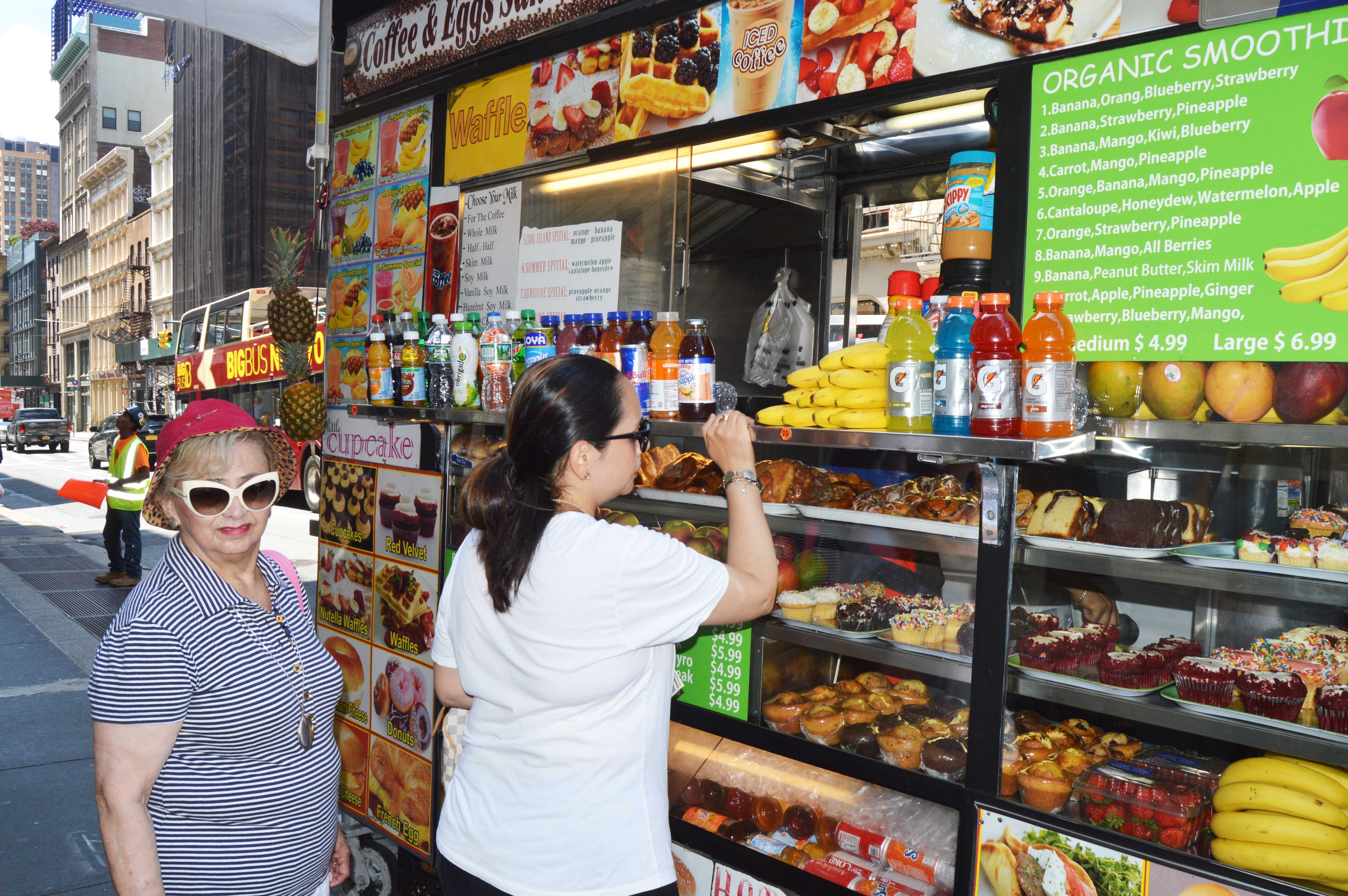
“Illinois and also New York,” said Frommer, “need to take this seriously. And more to the point, the Constitution requires that they take these kinds of warrantless surveillance schemes seriously.”
Frommer underscored his point by reading the GPS data sharing portion from the proposed rule: “‘The Department shall only use and disclose data obtained from a location sharing device to locate a unit for the purposes of enforcing the provisions of this Chapter, the Health Code, the Administrative Code,’ which is much broader,” he noted, “‘or as otherwise required by law.’” Frommer explained that New York City’s Administrative Code is the body of New York City’s laws.
“Does that mean if someone shows up with a subpoena saying, ‘Tell me where vendor X is,’ that they have to do that?” asked Frommer. “It’s very vague,” he said of the proposed rule, “and vague laws invite discrimination. They invite government overreach.”
When asked about issues of access to data collected by the GPS, a DHMH spokesperson wrote via email: “The Health Department will only use location sharing information to find a unit for inspection, so the GPS data will not be accessible to the public. The health department will not disclose data to other parties unless required by law.”
After the July 9 hearing, the DHMH aim to issue the final rules of the letter grade system within a month.
